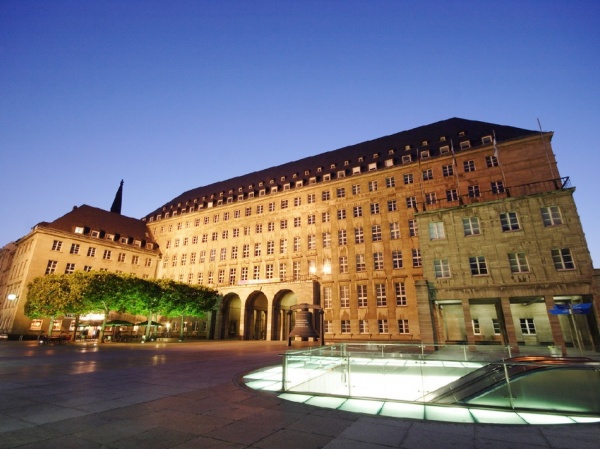Fair city sharing - what can urban planning contribute?
Our cities have grown over centuries. This also reflects the history of urban society, i.e. who was in charge, which professions were accessible to whom. A city is a multi-layered structure:...


YOUR FORUM FOR PLAY, SPORTS UND LEISURE AREAS

This figure is an increase of approximately € 235 million (2.8%) compared to 2012. This is a result of the second model calculation for the Financial Equalisation Scheme 2013, which was presented by Communities Minister, Ralf Jäger, in Düsseldorf. “The allocation of funds to the state is a new record. We remain a reliable partner to all local authorities and support them in the process of balancing their budgets,” said Jäger.
Playground@Landscape: According to forecasts there will be more left in local authority coffers in 2013?
Manfred Busch: Taxation trends, particularly on a national level, but also as regards NRW directly, are extremely pleasing. This is why there has been a clear increase in the allocation of funds to the NRW authorities within the framework of the overall revenue sharing scheme. However, our income from business tax in 2012 compared to 2011 has fallen in absolute terms. Economic development in the Ruhr district is below average.
Playground@Landscape: If you consider the results of the tax revenue forecast and calculate proportionally – how much income do you foresee Bochum receiving?
Manfred Busch: We estimate circa € 600 million directly and indirectly from tax revenues, which should initially rise by around 4.5%, and long term by 2% annually. Revenue from business tax is developing most slowly – in 2007 and 2008 the figure was around € 170 million, but in 2012 the figure was down to € 133 million.
Playground@Landscape: Will the local authorities’ financial crisis get worse?
Manfred Busch: We are continuing to make significant savings in all areas, also by only employing external staff in emergencies. There are, however, some negative factors to overcome: Interest rates will – though not in the next couple of years – rise again in the long term. If the economy slows down then it’s not only the tax revenue that will be affected; social security charges will also rise. The ‘integration assistance’ and ‘youth welfare’ sectors have seen disproportionate increases in the amount of funding required for years, with this being completely independent of economic development.
Playground@Landscape: Will the average citizen notice this? Will more libraries and playgrounds be closed? Or will there be some form of investment?
Manfred Busch: We are investing in order to further improve the profitability of our work. The savings to be made through this process will be nowhere near enough though: According to our budget safeguard concept, the basis for the approval of the 2013 budget was that we will have to reduce employee numbers by 1,000 from an existing workforce of 5,500 by 2022. This will only be possible with concurrent reductions for our citizens, too.
Playground@Landscape: The Opel factory is closing. Has Bochum been affected particularly hard?
Manfred Busch: Approximately half of the 4,000 jobs under threat are currently occupied by Bochum citizens. In Bochum there are currently 120,000 employees paying national insurance contributions. It is quite obvious that the loss of jobs on such a scale – especially after the inglorious departure of Nokia and the threat being faced by ThyssenKrupp Nirosta – is very difficult to overcome. The town and the region are behind the employees that are fighting for their jobs.
Playground@Landscape: When will you be able to expect more money again then?
Manfred Busch: The town of Bochum tries in every possible way to create attractive conditions in terms of location for businesses, in particular through the networking enjoyed with Ruhr University (e.g. Health Campus and Technology Centres). There has been considerable success in this respect: The healthcare industry, for example, has shown signs of a considerable rise in employment figures. For the town budget to see the financial benefits of these successes, however, years and decades will first have to pass.
The interview was carried out by Thomas R. Müller (Playground@Landscape)